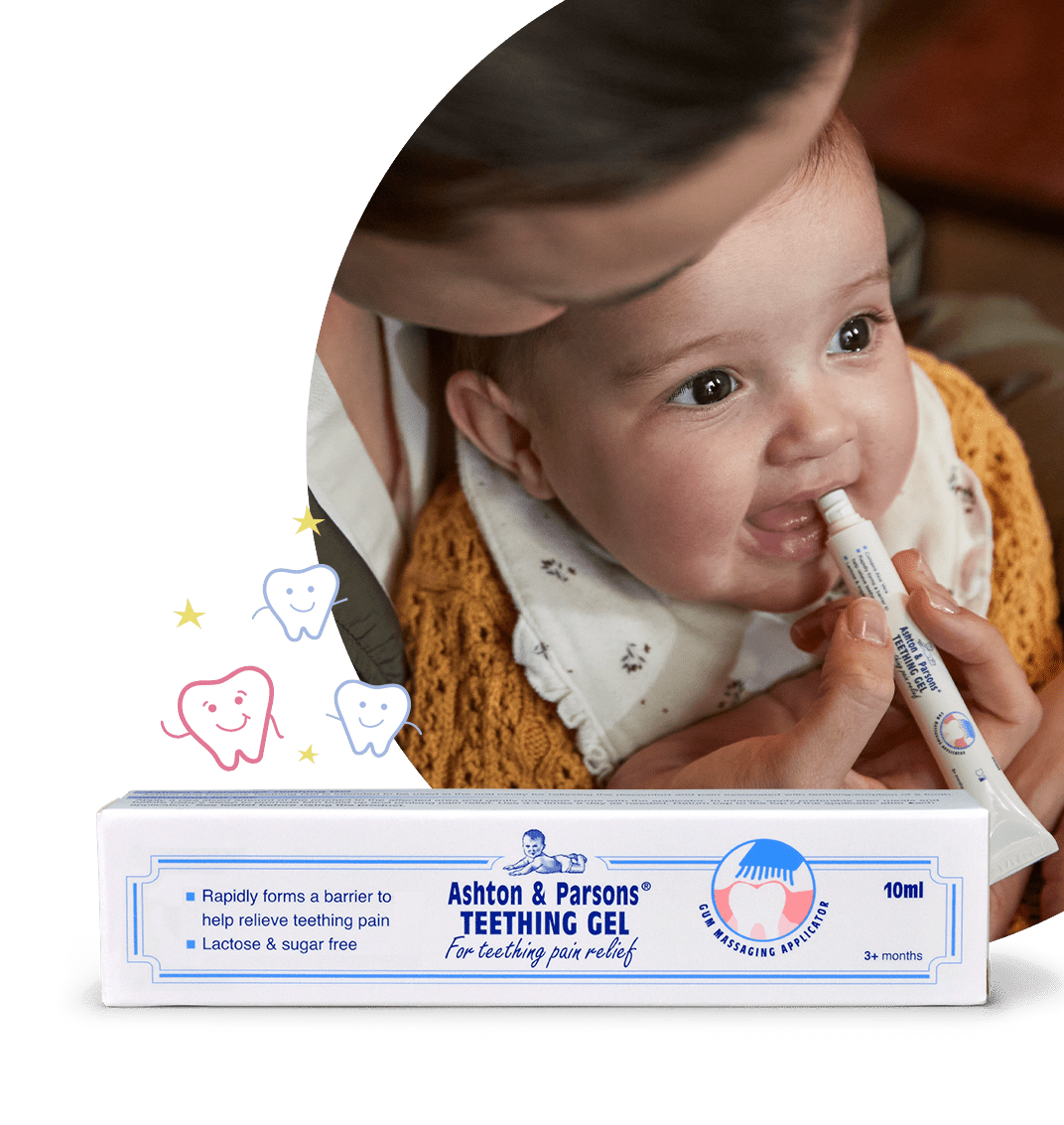Tracey Stone: Caring for Your Baby’s Teeth
Tracey Stone is a Health Visitor, and able to provide expert guidance on all things teething. Currently a registered practising Health Visitor in the community working with children and their families, Tracey also supports families in the online community with issues related to health and wellbeing. She is a qualified Paediatric Nurse with over 20 years’ experience and a Nurse Prescriber. She has also helped establish a respite service for Children with Special Needs.

The right tools for the job are essential, so it’s a good idea to buy what you need in advance so there is no delay in getting brushing once their teeth appear. Most brands of toothbrush have their products clearly labelled with what brush type is suitable for whom, so you will have lots of choice! For your young baby, you’ll need a brush with a small head and gentle soft bristles. It worth considering buying two so you and your baby can have one each, otherwise, your little one may spend most of the time grabbing it out of your hand! It is also Ok to start off with using a clean flannel or muslin cloth wrapped around your finger to gently clean their teeth. Your baby may have a tiny mouth so this can feel an easier start for you both.
Toothpaste choice can also cause confusion. The different flavours, colours, shapes plus current cartoon character logos don’t help either. As your child’s independence grows you may also have their demands to manage, of which one is their preferred choice too! Basically, it’s quite simple. The most current information for maximum protection of babies’ teeth from birth to 3 years is to use just a smear of children’s fluoride toothpaste on their brush or cloth containing no less than 1,000ppm of fluoride or family toothpaste containing between 1,350-1,500ppm fluoride.
Children from age 3 to 6 years should use a pea sized amount of standard adult toothpaste containing no less than 1,000ppm of fluoride, or family toothpaste containing between 1,350-1,500ppm fluoride. From age 7 onwards they brush the same as the grown-ups. Your baby needs your complete attention to look after their teeth until they reach the age of 7 years. As a guide, you can begin to start observing them brush independently about the same time their wrists develop to skilfully produce joined-up handwriting.
If you are not already, build brushing twice a day into your families’ routine. When it’s your baby’s turn, get down to their eye level and let them watch you brush yours. Sing songs, maybe use a mirror and make it fun! This way you’re less likely to meet any resistance, which can happen as it’s a new experience. Give the teeth a gentle clean, extending the time up to 2 minutes when they have their full set of 20. Remove excess toothpaste foam from their mouths, but try not to rinse it all away. It’s good to leave the fluoride on the teeth to keep them protected. This explains why the most important time of brushing is before bed at the end of their day, so the fluoride remains on their teeth while they’re asleep.
Other ways to protect your baby’s teeth is to reduce and limit the amount of sugar the teeth are exposed to. Childhood tooth decay in young babies and children is strongly linked to sugar-sweetened drinks in bottles. When your baby is 6 months old begin to introduce a free flow cup with no suction valve. Your baby will learn to sip rather than suck which is much better for their teeth. A good target to aim for is to have completely stopped using bottles when they reach their 1st birthday. Many babies do still need the comfort of a drink during the night, and of course, you need sleep too. If a quick drink settles your little one to sleep with ease, and you are still happy to do this, the best choice to offer them to protect their teeth is water.
Read more here about sugar in your baby’s diet.
Dummies and thumb sucking are also things that your baby may need to allow them to settle. They have a place in many family lives and can offer essential comfort. It’s good to be aware they can cause long-term problems as the teeth grow and develop so are not ideal for long-term use.
Making sure you and your family are all registered with a Dentist and have regular check-ups is all part of looking after your families’ teeth. Ask your Dentist when they would like to see your baby for their first appointment, normally it is when their teeth start to appear. Your Red book contains some really good information about healthy teeth and also a record for you to keep about your dental check-ups. Your HV is also skilled in offering support on healthy teeth and gums and can guide you on giving your child’s teeth the best start in life.
General advice only, Tracey does not endorse the brand.





